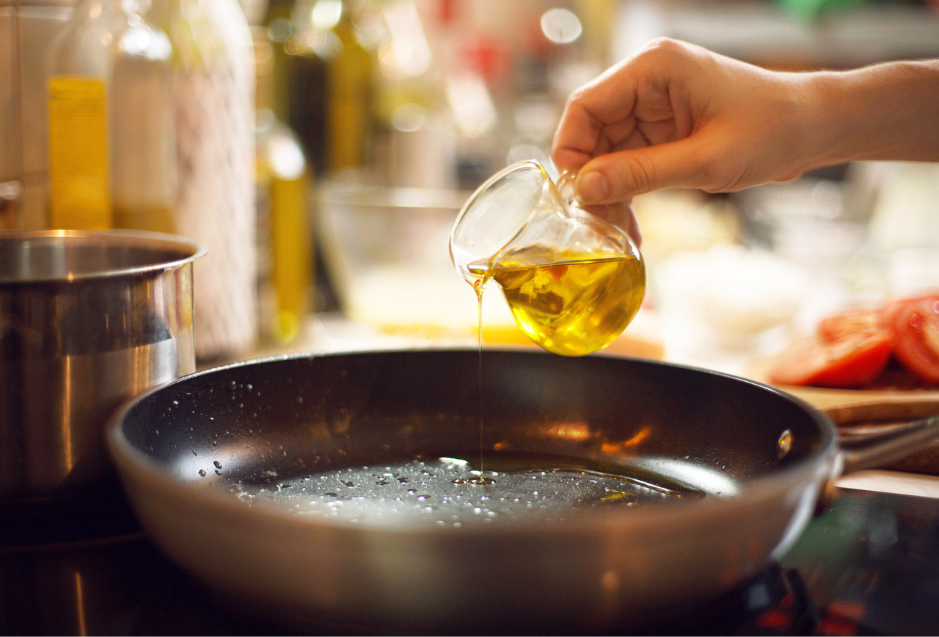Are you unsure about which oil to choose for high-temperature cooking?
Discover the truth about extra virgin olive oil's performance in the kitchen's fiery heat.
Bid farewell to doubts and embrace the sizzle as we delve into the world of cooking confidently with extra virgin olive oil, even at high temperatures.
Is Extra Virgin Olive Oil Up for the Heat?
We've all been there, standing in front of a sizzling pan, wondering which oil to choose for our high-temperature culinary endeavors.
In the midst of this cooking conundrum, extra virgin olive oil comes to mind. But can it handle the heat?
Let's dive into the discussion and put those doubts to rest.
The Smoke Point Myth
Before we get into the nitty-gritty, let's debunk a common myth surrounding extra virgin olive oil—the smoke point myth.
You may have heard that cooking with extra virgin olive oil is a no-no because it has a low smoke point. But that's not entirely true.
Contrary to popular belief, extra virgin olive oil actually has a reasonably high smoke point—around 375°F (190°C) on average.
According to the 2018 research published in Acta Scientific Nutritional Health shows that not only is extra-virgin olive oil safe when cooked at extremely high heat, it is more chemically stable at those temperatures than other common cooking oils.
This means it can handle most everyday cooking methods like sautéing, stir-frying, and even oven-roasting.
The Magic of Antioxidants
One of the reasons extra virgin olive oil performs well at high temperatures is its abundance of antioxidants.
These antioxidants, such as vitamin E and phenols, help protect the oil from oxidative damage, even when exposed to heat.
It's important to note that the quality of the oil matters too. Opt for high-quality extra virgin olive oil with a low acidity level, as it tends to have a higher smoke point and better overall stability.
Flavor Preservation
Using extra virgin olive oil in high-heat cooking doesn't just give you a better smoke point; it also adds a delightful depth of flavor to your dishes.
The heat helps unlock the oil's aromatic compounds, infusing your food with a rich and distinctive taste.
Imagine drizzling a high-quality extra virgin olive oil over your roasted vegetables, and as they sizzle in the oven, they soak up the oil's earthy flavors. It's a culinary experience that elevates your dishes to a whole new level.
When to Choose Another Oil
While extra virgin olive oil is great for most high-temperature cooking, there are a few exceptions.
If you're aiming for deep-frying or prolonged cooking at very high temperatures, you might want to consider using oils with much higher smoke points, like coconut oil.
However, for most everyday cooking needs, extra virgin olive oil is your trusty companion.
Conclusion
So, the next time you find yourself in front of a hot stove, feel confident in reaching for that bottle of extra virgin olive oil.
It's not just for drizzling on salads or dipping bread—it's a versatile and resilient cooking oil that can withstand the heat while adding a delightful touch of flavor to your dishes.
Join our community of cooking enthusiasts who have embraced the wonders of extra virgin olive oil.
Try our international award-winning olive oils and experience the true taste of excellence. Order now and elevate your culinary creations!

